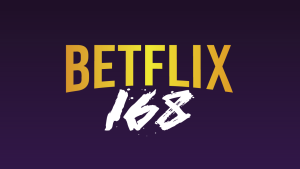In the digital era, where connectivity is king, online gaming stands as a testament to the power of technology to bring people together across vast distances. From the early days of text-based adventures to the immersive virtual worlds of today, the realm of online gaming has undergone a remarkable evolution, shaping not only entertainment but also social interaction, culture, and even economies.
The Dawn of Online Gaming
The concept of online gaming can be traced back to the 1970s and 1980s, with primitive text-based adventures and early multiplayer betflik ใหม่ล่าสุด games like MUDs (Multi-User Dungeons). These rudimentary games laid the groundwork for what would become a global phenomenon, demonstrating the potential for interconnected virtual worlds where players could interact and compete in real-time.
The Rise of Massively Multiplayer Online Games (MMOs)
The true explosion of online gaming occurred in the late 1990s and early 2000s with the advent of Massively Multiplayer Online Games (MMOs). Titles like “Ultima Online” and “EverQuest” captured the imagination of millions, offering expansive worlds where thousands of players could inhabit the same space simultaneously, completing quests, battling monsters, and forging alliances.
The Mainstreaming of Online Gaming
As internet infrastructure improved and gaming consoles became more commonplace, online gaming transitioned from a niche hobby to a mainstream pastime. Games like “World of Warcraft,” “Counter-Strike,” and “League of Legends” became household names, attracting millions of players from all walks of life and spawning professional esports leagues with massive audiences and lucrative prize pools.
The Evolution of Social Gaming
Beyond competitive play, online gaming has also become a social platform where friendships are forged, communities are built, and virtual spaces serve as gathering grounds for like-minded individuals. Platforms like Twitch and Discord have transformed gaming into a shared experience, allowing players to stream their gameplay, connect with audiences, and participate in live discussions.
The Impact on Culture and Society
The influence of online gaming extends far beyond the digital realm, permeating popular culture, art, and even academia. Games like “Fortnite” and “Minecraft” have become cultural phenomena, inspiring everything from dance crazes to virtual concerts. Researchers study the social dynamics of virtual communities, while educators explore the potential of games as learning tools.
The Future of Online Gaming
Looking ahead, the future of online gaming appears boundless. Advancements in technology, such as virtual reality (VR) and cloud gaming, promise even more immersive and accessible experiences. Artificial intelligence (AI) and procedural generation techniques are poised to revolutionize game design, creating worlds that adapt and evolve based on player actions.
Conclusion
Online gaming has come a long way since its humble beginnings, evolving into a multi-billion dollar industry that continues to push the boundaries of innovation and creativity. Whether you’re questing with friends in a virtual fantasy realm or battling rivals in a digital arena, the world of online gaming offers endless opportunities for adventure, camaraderie, and discovery. As technology continues to advance, one thing remains certain: the journey through virtual realms is just getting started.
